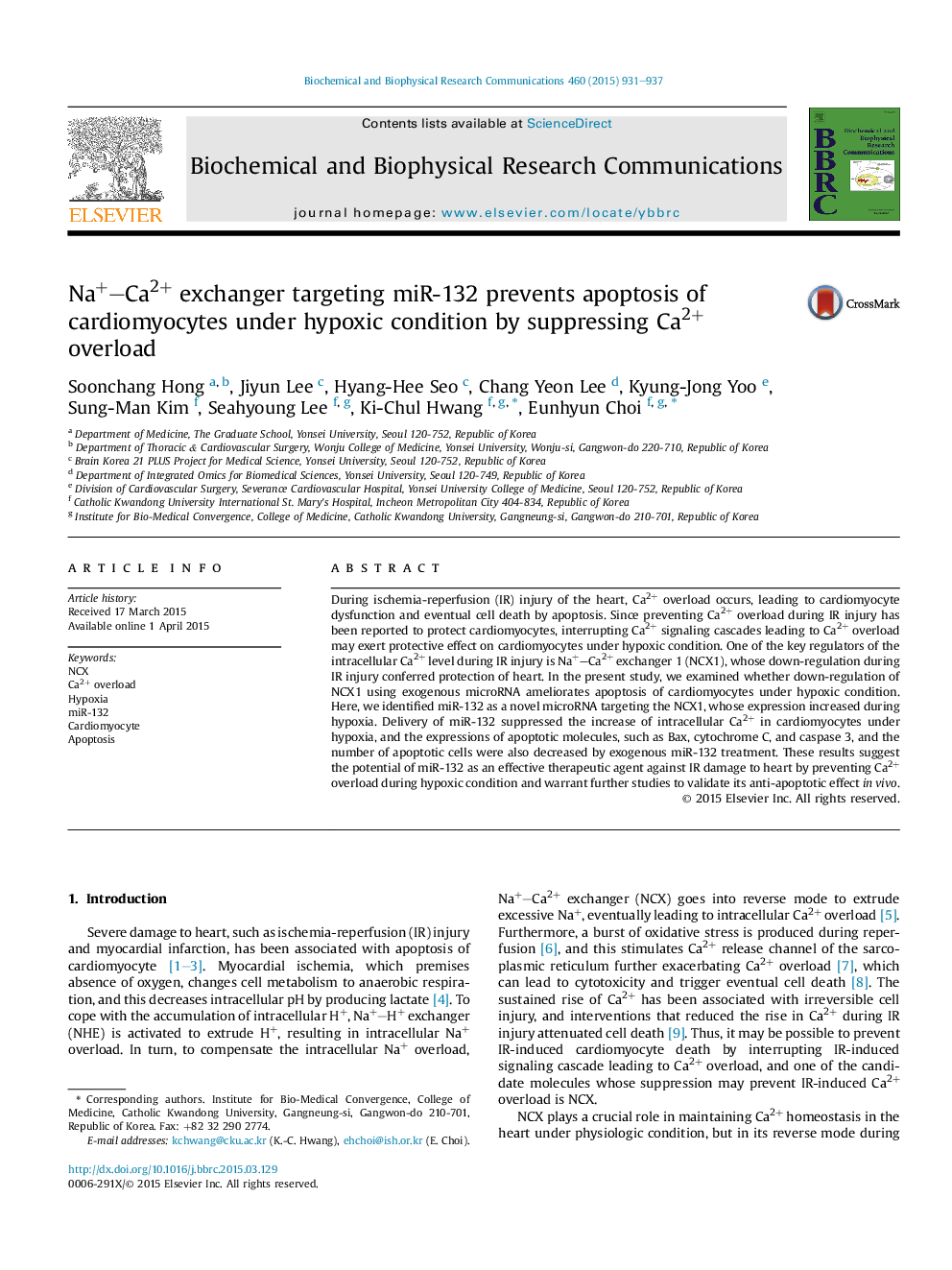| Article ID | Journal | Published Year | Pages | File Type |
|---|---|---|---|---|
| 1928170 | Biochemical and Biophysical Research Communications | 2015 | 7 Pages |
Abstract
During ischemia-reperfusion (IR) injury of the heart, Ca2+ overload occurs, leading to cardiomyocyte dysfunction and eventual cell death by apoptosis. Since preventing Ca2+ overload during IR injury has been reported to protect cardiomyocytes, interrupting Ca2+ signaling cascades leading to Ca2+ overload may exert protective effect on cardiomyocytes under hypoxic condition. One of the key regulators of the intracellular Ca2+ level during IR injury is Na+-Ca2+ exchanger 1 (NCX1), whose down-regulation during IR injury conferred protection of heart. In the present study, we examined whether down-regulation of NCX1 using exogenous microRNA ameliorates apoptosis of cardiomyocytes under hypoxic condition. Here, we identified miR-132 as a novel microRNA targeting the NCX1, whose expression increased during hypoxia. Delivery of miR-132 suppressed the increase of intracellular Ca2+ in cardiomyocytes under hypoxia, and the expressions of apoptotic molecules, such as Bax, cytochrome C, and caspase 3, and the number of apoptotic cells were also decreased by exogenous miR-132 treatment. These results suggest the potential of miR-132 as an effective therapeutic agent against IR damage to heart by preventing Ca2+ overload during hypoxic condition and warrant further studies to validate its anti-apoptotic effect in vivo.
Related Topics
Life Sciences
Biochemistry, Genetics and Molecular Biology
Biochemistry
Authors
Soonchang Hong, Jiyun Lee, Hyang-Hee Seo, Chang Yeon Lee, Kyung-Jong Yoo, Sung-Man Kim, Seahyoung Lee, Ki-Chul Hwang, Eunhyun Choi,
